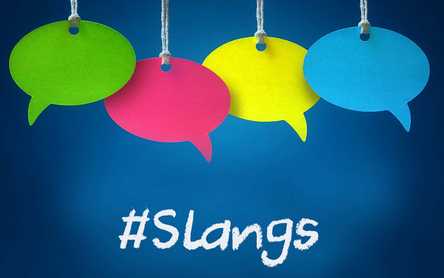
support@yorubalibrary.com
+2348073529208, 07038599574

Yoruba is one of the most expressive and lively languages in West Africa, with a wide array of slangs that showcase everyday life, humor, street culture, and wisdom. For diasporans — especially those who grew up outside Nigeria — understanding and using common Yoruba slangs can be a fun way to connect with your heritage, bond with Yoruba speakers, or simply sound more native.
Whether you're speaking with friends, chatting online, or just trying to understand lyrics in Afrobeats songs, slangs give you that extra edge. Unlike formal Yoruba taught in books, these phrases are casual, catchy, and often humorous. In this article, you'll learn some of the most popular Yoruba slangs in use today, what they mean, and how they are commonly used.
Popular Yoruba Slangs and Their Meanings:
1. Shey You Dey Whine Me Ni?
Meaning: Are you joking with me? / Are you being serious?
Usage: Said when someone says something unbelievable or funny.
2. O Por (It's plenty)
Meaning: That’s massive, it’s a lot, or very impressive.
Usage: “You just bought three iPhones? O por!”
3. Wahala
Meaning: Trouble or problem.
Usage: “No bring wahala come here o.” (Don’t bring trouble here.)
4. Japa
Meaning: To escape or run away, especially to travel abroad.
Usage: “As police enter, everybody japa.” (Everyone ran away when the police arrived.)
5. Gbese
Meaning: Debt or being in trouble.
Usage: “This one don enter gbese again.” (He’s in trouble again.)
6. Omo!
Meaning: An exclamation of surprise, shock, or admiration.
Usage: “Omo! See the way she dey dance!” (Wow! Look at how she’s dancing!)
7. Sapa
Meaning: A state of being extremely broke or financially down.
Usage: “Sapa no go kill person.” (Being broke is frustrating.)
8. Werey
Meaning: Crazy person (used playfully or insultingly).
Usage: “See this werey, why you dey talk like that?” (Look at this clown, why are you talking like that?)
9. E Choke
Meaning: It’s overwhelming (can be used for shock or excitement).
Usage: “Omo this your dress e choke!” (Your dress is stunning!)
10. Gbam!
Meaning: Confirmed, spot on, exactly.
Usage: “You talk am well, gbam!” (You said it right, exactly!)
11. Yarn
Meaning: To talk or gist.
Usage: “Come yarn me wetin happen for party.” (Come tell me what happened at the party.)
12. Pele
Meaning: Sorry or well done (depends on context).
Usage: “Pele o, I know say you try.” (Sorry, I know you tried.)
13. Omo Naija
Meaning: A Nigerian child or someone proudly Nigerian.
Usage: “Even in Canada, he still be omo Naija.”
14. Omo Aye
Meaning: Street-smart person.
Usage: “That boy na omo aye, he sabi street things.”
15. No Wahala
Meaning: No problem, it’s okay.
Usage: “You no fit come again? No wahala.” (You can’t make it again? It’s fine.)
Why These Slangs Matter to Diasporans:
These slangs not only help in understanding Yoruba pop culture — like songs, comedy skits, and social media posts — but also help bridge the communication gap when speaking with native Yoruba speakers. Diasporans who use these slangs often feel more connected to home and are able to hold fun, lively conversations that go beyond formal Yoruba expressions.
Conclusion:
Yoruba slangs are fun, expressive, and constantly changing. As with any language, practice makes perfect — try using them in conversations, and you'll soon find yourself sounding like a true Yoruba insider.

Learn about the Yoruba concept of Ìwà Pẹ̀lẹ́ (good…

Learn special praises for Divine Being and Creator…